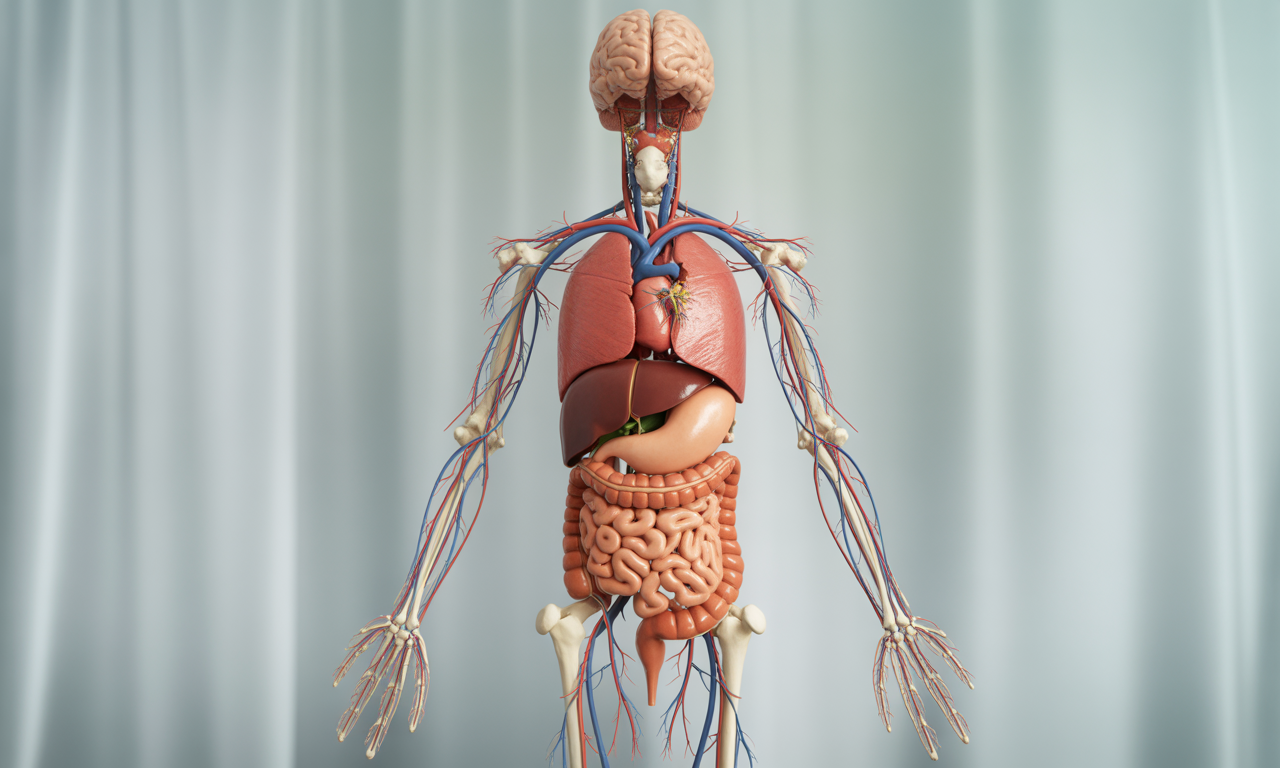The kidneys are two bean-shaped organs that play a critical role in maintaining your body’s internal balance. Located on either side of the spine, just below the rib cage, these powerful organs silently work around the clock to filter waste, balance fluids, and regulate essential bodily functions. What Are the Kidneys? The kidneys are vital […]
Health
Lungs: Structure, Functions, and Key Facts
The lungs are the primary organs of the respiratory system. Every time you breathe, your lungs work hard to bring in oxygen and remove carbon dioxide — a vital exchange that keeps your body alive and functioning. Together, your lungs support nearly every cell in your body by fueling it with oxygen-rich blood. What Are […]
Heart: Structure, Functions, and Key Facts
The heart is the engine of the human body — a muscular organ that pumps blood continuously to deliver oxygen and nutrients to tissues while removing waste products. Roughly the size of a clenched fist, the heart beats over 100,000 times per day to keep you alive and well. What Is the Heart? The heart […]
Liver: Structure, Functions, and Key Facts
The liver is the largest internal organ in the human body and one of the most vital for survival. Located in the upper right portion of the abdomen, just beneath the diaphragm, the liver performs hundreds of functions that keep the body healthy — including filtering toxins, aiding digestion, and storing energy. What Is the […]
Understanding the Human Brain – Anatomy & Disorders
The brain is the control center of the human body and the most complex organ in the nervous system. It coordinates thought, memory, emotion, touch, motor skills, vision, breathing, and countless other functions that sustain life. Protected by the skull and cushioned by cerebrospinal fluid, the brain is both incredibly powerful and surprisingly delicate. What […]
Stomach: Structure, Functions, and Key Facts
The stomach is a vital organ in the digestive system, positioned between the esophagus and the small intestine. It plays a central role in breaking down food into a form your body can absorb. Shaped like a J and located in the upper left part of the abdomen, the stomach can expand and contract depending […]

Organs: Comprehensive Guide to Human Organs, Functions & Facts
What Are Organs? Organs are specialized structures in the human body that perform specific, essential functions required for survival and well-being. Each organ is composed of multiple tissue types working together to support vital biological processes such as circulation, digestion, respiration, and waste removal. Organs do not function in isolation—they operate as part of larger […]
Small Intestine: Structure, Functions, and Key Facts
The small intestine is a long, coiled tube in the digestive tract located between the stomach and the large intestine. Although it’s called “small” due to its narrow diameter, it’s actually the longest part of the digestive system, measuring about 6 to 7 meters (20 to 23 feet) in length. Its primary role is to […]
Large Intestine: Structure, Functions, and Key Facts
The large intestine is the last section of the human digestive tract. It starts where the small intestine ends and is made up of four main parts: the cecum, colon, rectum, and anus. Shaped like a loop around the small intestine, the large intestine is about 1.5 meters (5 to 6 feet) long and wider than the […]


